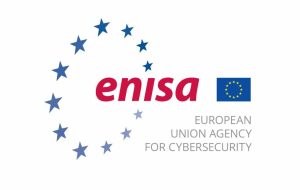The UAE continues to strengthen its commitment to building a secure digital environment that protects users from growing cyber risks while keeping pace with rapid technological advancements. As part of its national vision to enhance digital trust, the country is working to raise awareness of cybersecurity practices, safeguard privacy, and promote responsible digital behaviour among families and individuals in an era of accelerated digital transformation.
The UAE Cybersecurity Council has warned of the rising threat of cyberattacks targeting smart homes. According to its latest findings, nearly 70% of Internet of Things (IoT) devices in smart homes—ranging from voice assistants and security cameras to smart lighting and climate control systems—are potentially vulnerable if basic digital security measures are not taken.
The Council highlighted that weak user awareness and reliance on default device settings are among the most common risks. Risky behaviours include keeping voice assistants permanently active and connected to the internet without verifying network security, as well as sharing the home Wi-Fi password with visitors. Such practices can create technical vulnerabilities that enable hackers to access sensitive household data and remotely control smart devices.
Particular concern was raised about the widespread use of baby monitoring devices, which can be easily exploited if left unsecured. In such cases, hackers may record conversations, track household movements, or even communicate directly with children or family members.
To address these risks, the Council issued three core recommendations:
Use strong and unique passwords.
Regularly update the software of all smart devices.
Manage all smart devices through a central system to minimise entry points for attackers.
Additional advice included disabling voice assistants when not in use, enabling security and privacy settings across all devices, avoiding unnecessary internet connections, and keeping smart devices on a separate network from the main home Wi-Fi.
The Importance of Regular Updates
The Cybersecurity Council also underscored the critical importance of regularly updating all digital systems, especially smartphones, laptops, browsers, routers, and smart home devices, which remain the most frequent targets of cybercriminals. Outdated systems, it warned, provide an ideal environment for malware, data theft, and network breaches.
Experts recommend enabling automatic updates, checking update settings regularly, and monitoring devices for unusual behaviour. The Council stressed that most cyberattacks exploit known vulnerabilities that could have been prevented through simple updates. Far from being mere technical improvements, updates serve as essential digital shields that protect systems from evolving threats.
Global figures highlight the scale of the challenge, with more than 30,000 new vulnerabilities discovered worldwide in 2024 alone. This growing trend underscores the need for continuous vigilance, regular updates, and safe browsing practices.
Through these measures, the UAE aims to further strengthen its cybersecurity ecosystem, ensuring a safer digital environment that protects citizens and residents while reinforcing national resilience in the face of rapidly advancing digital threats.














